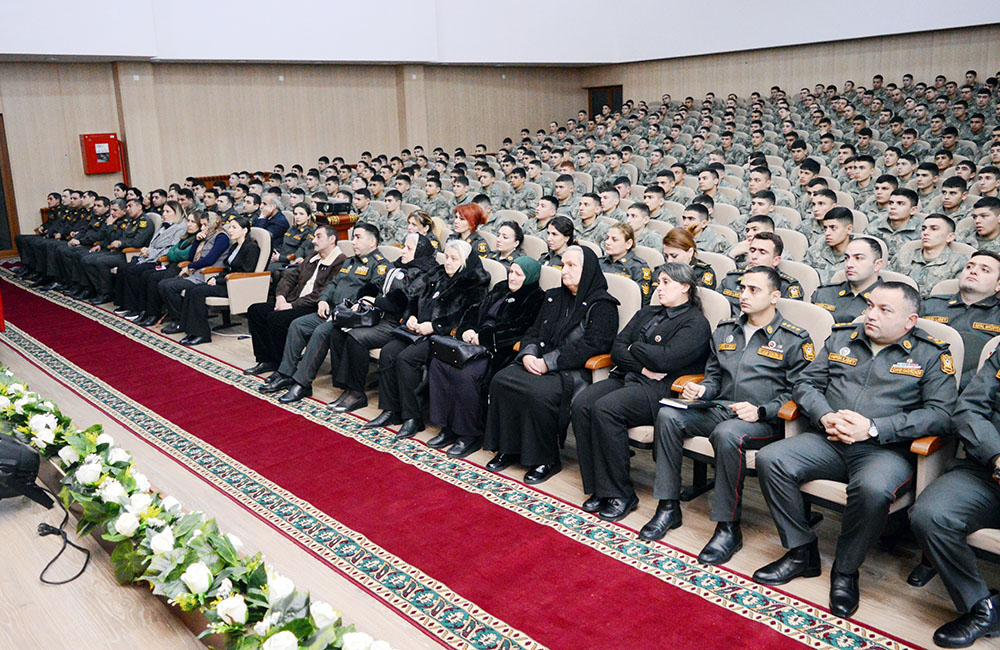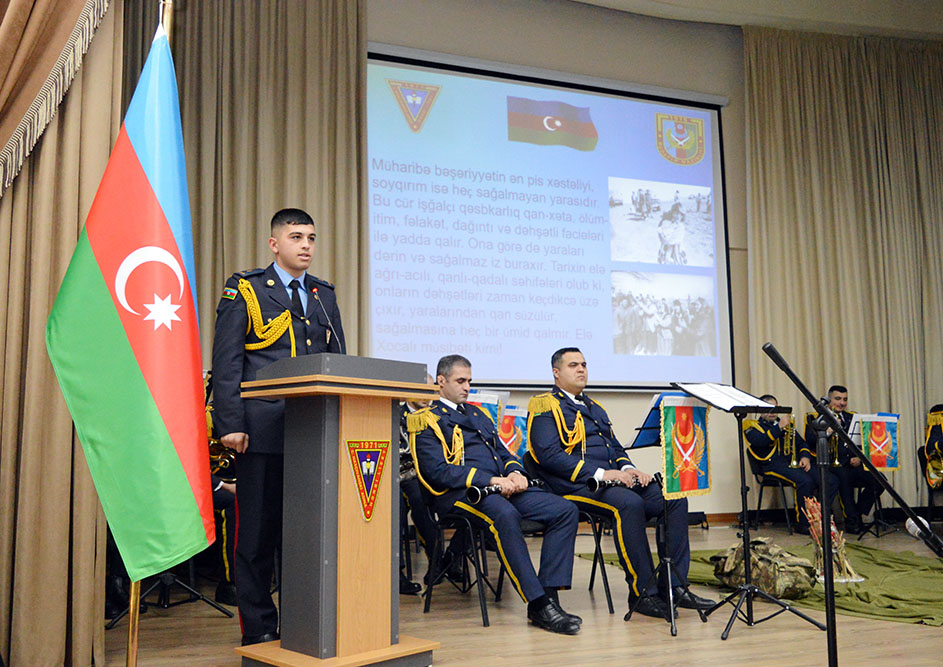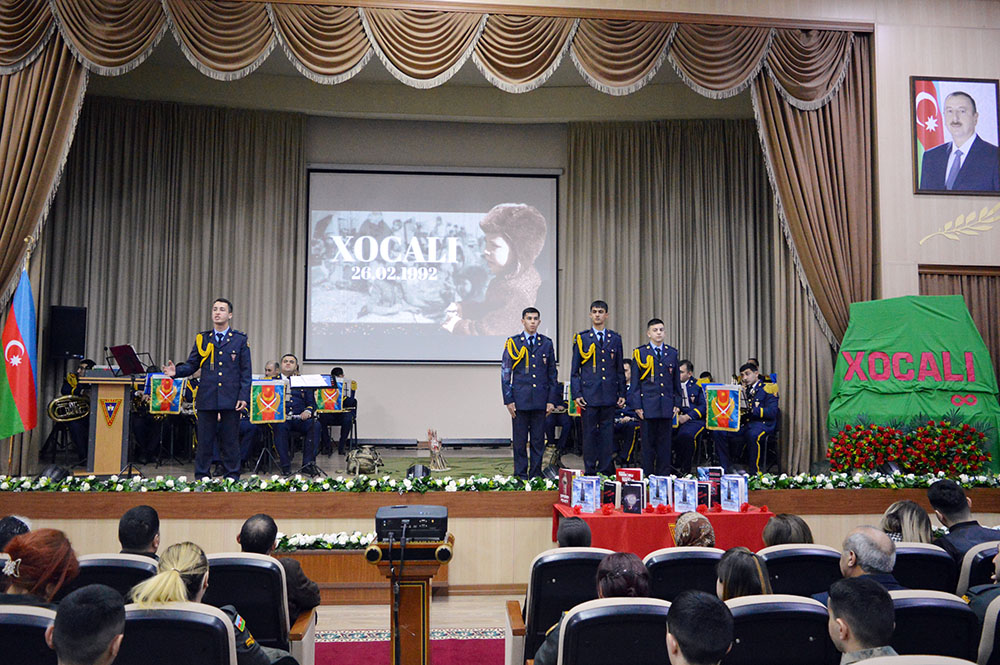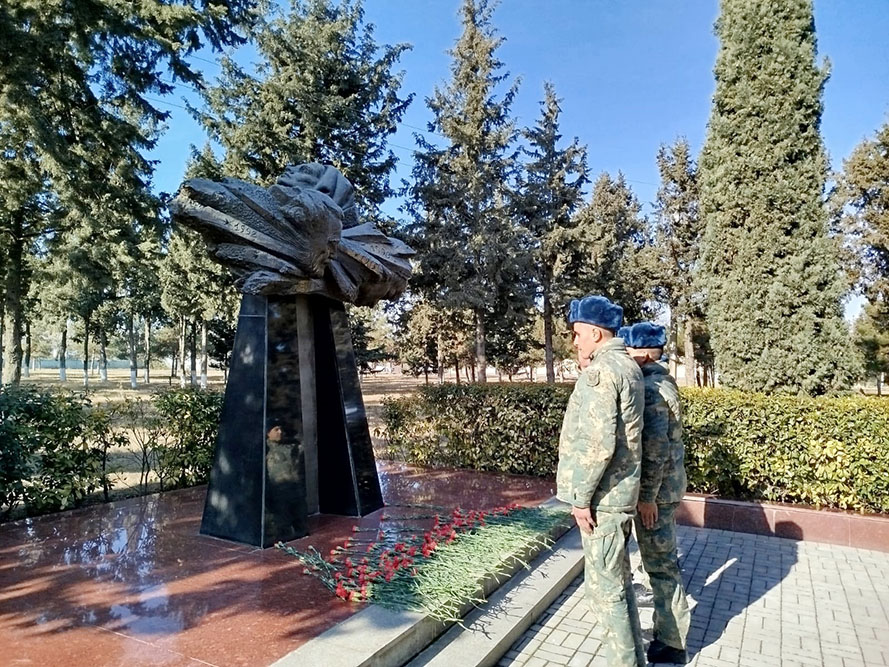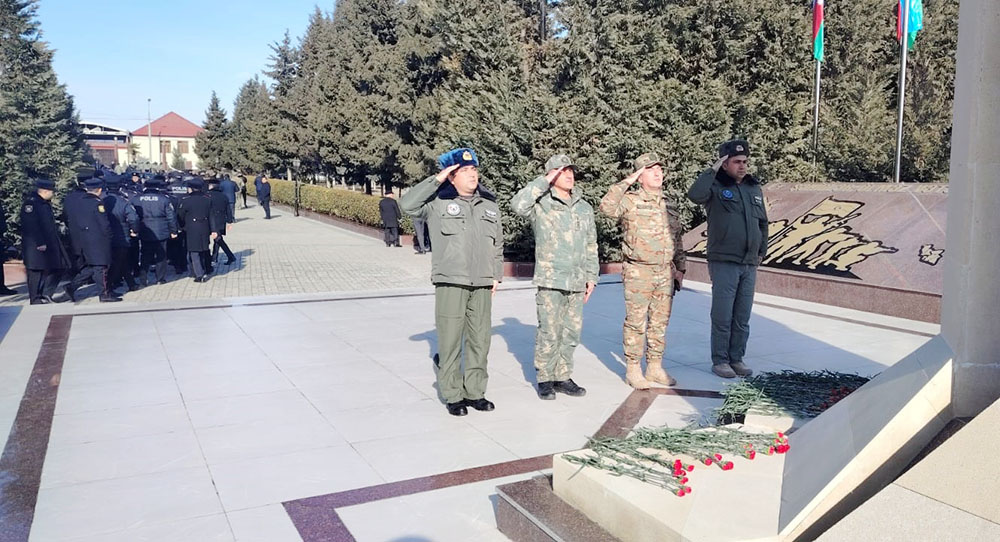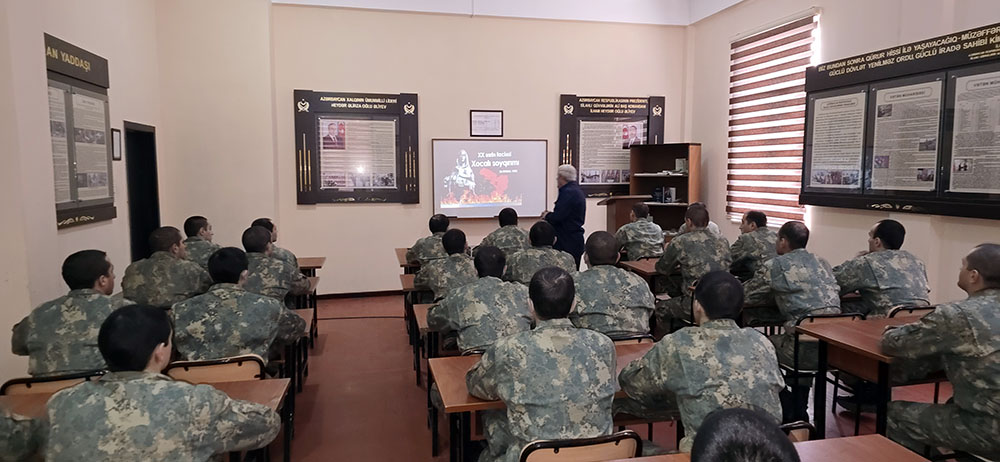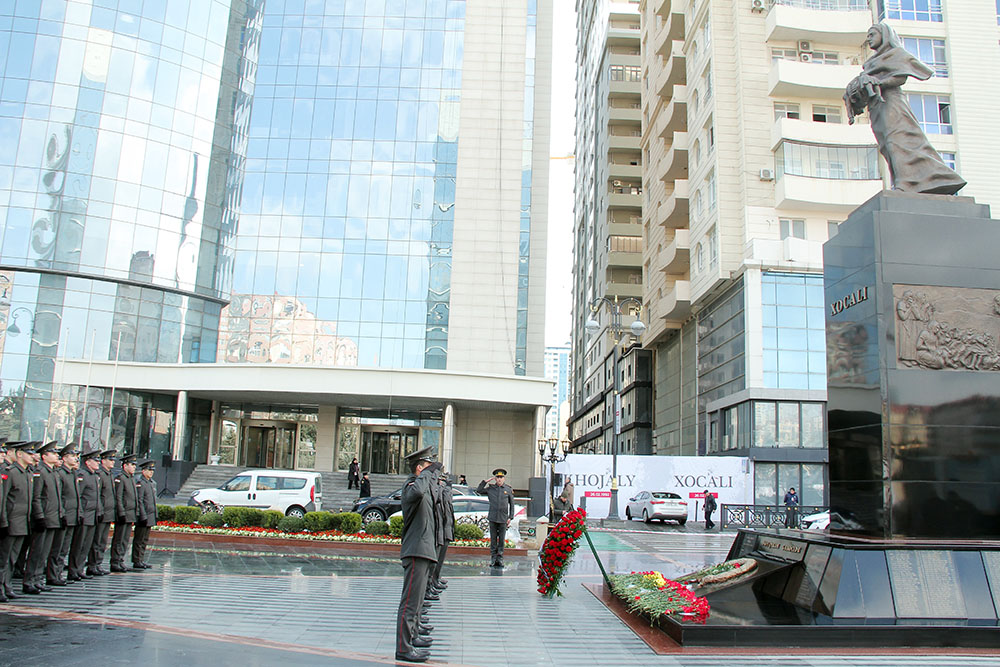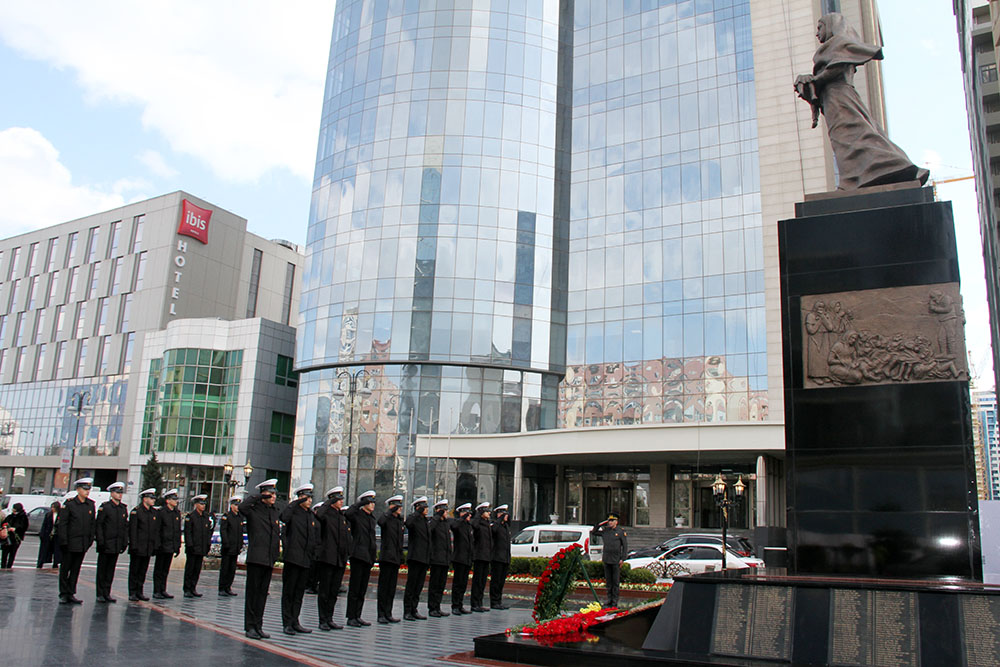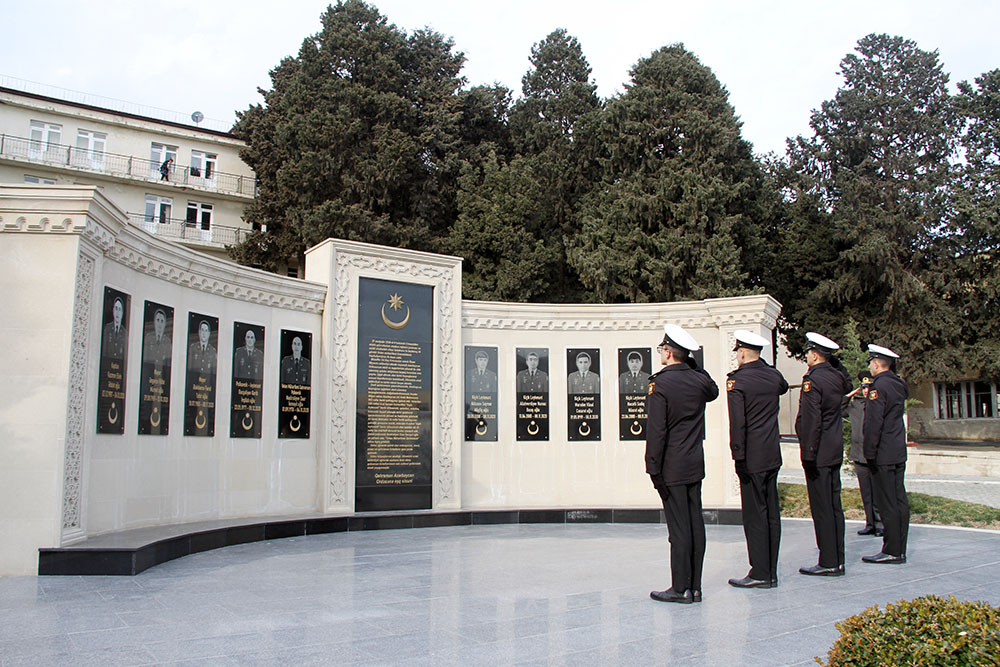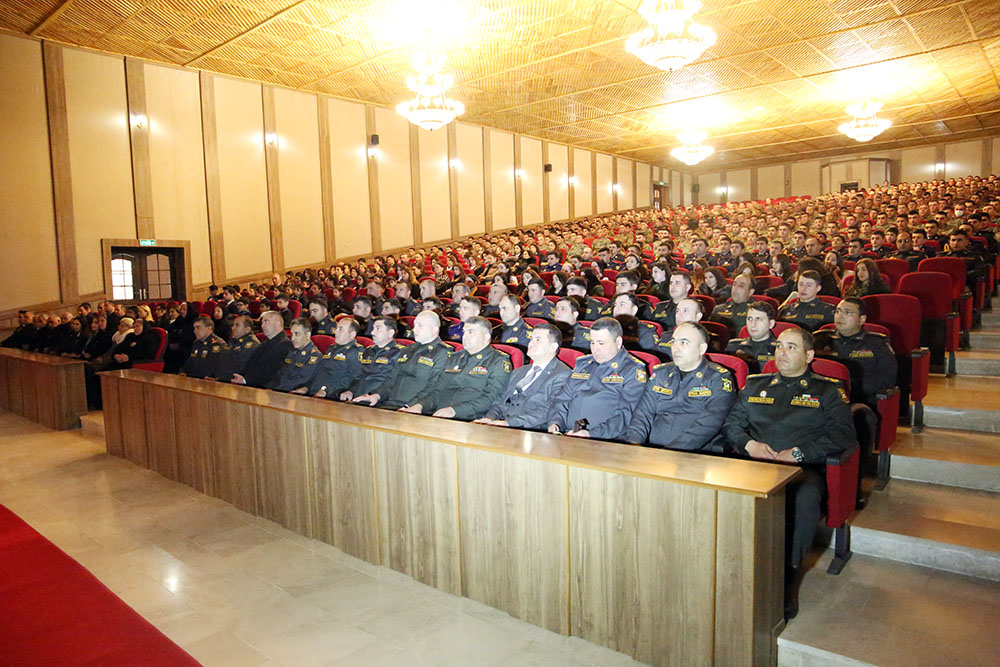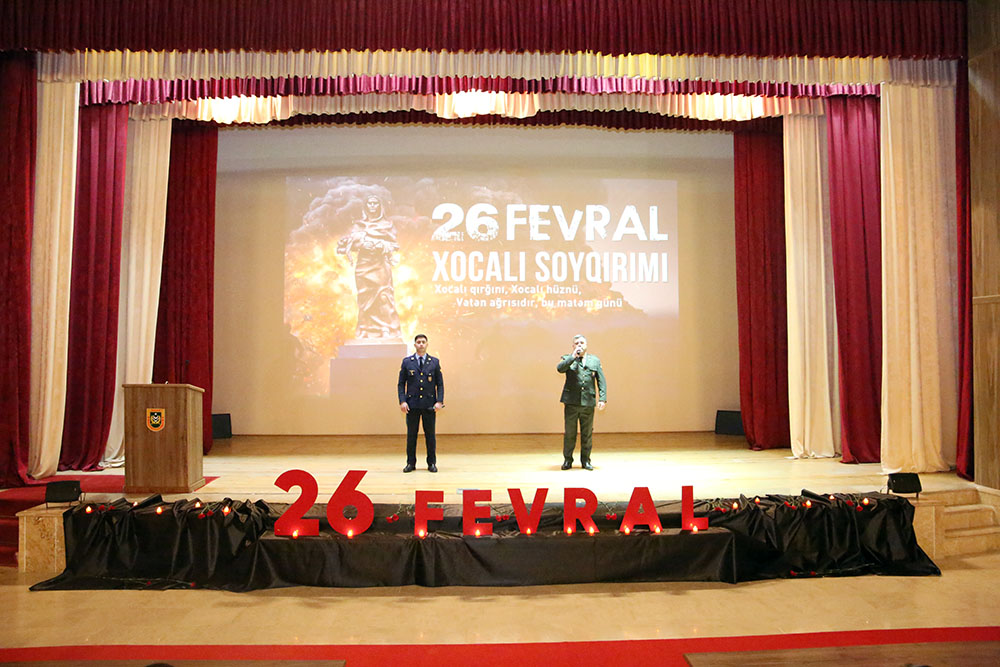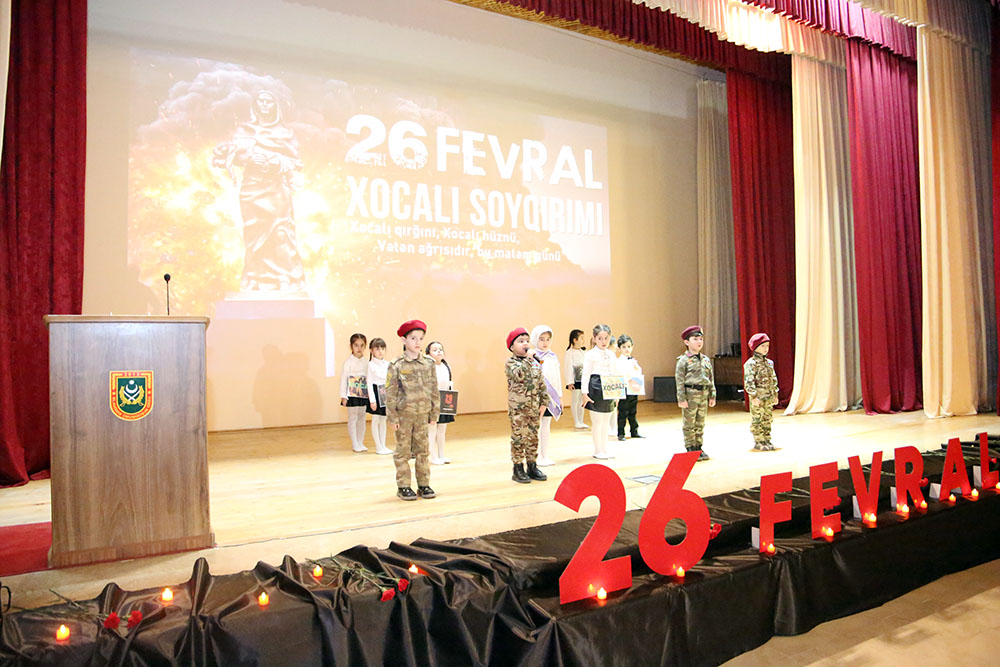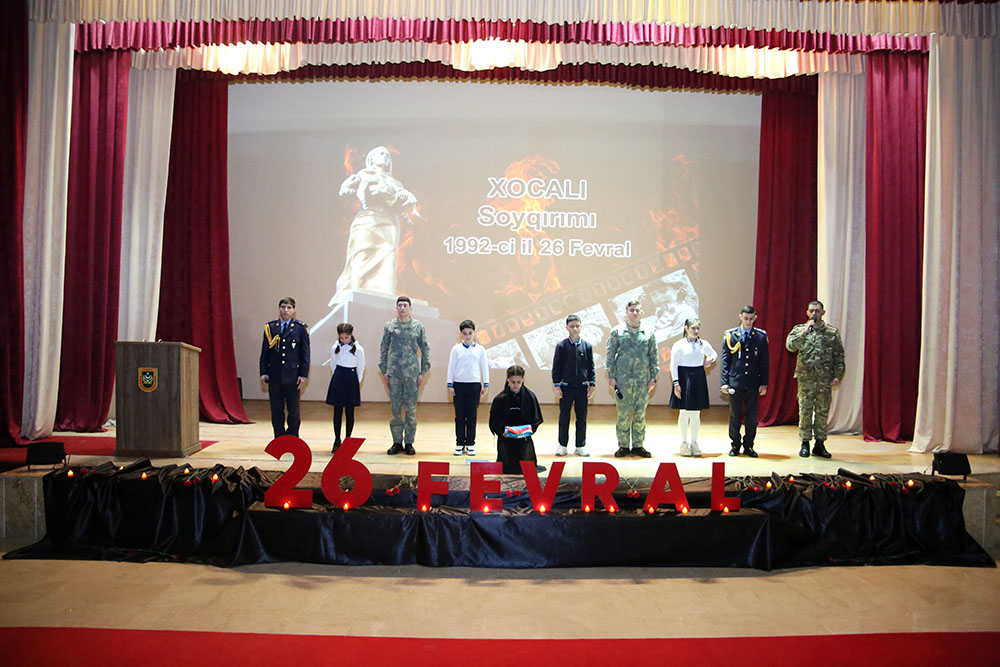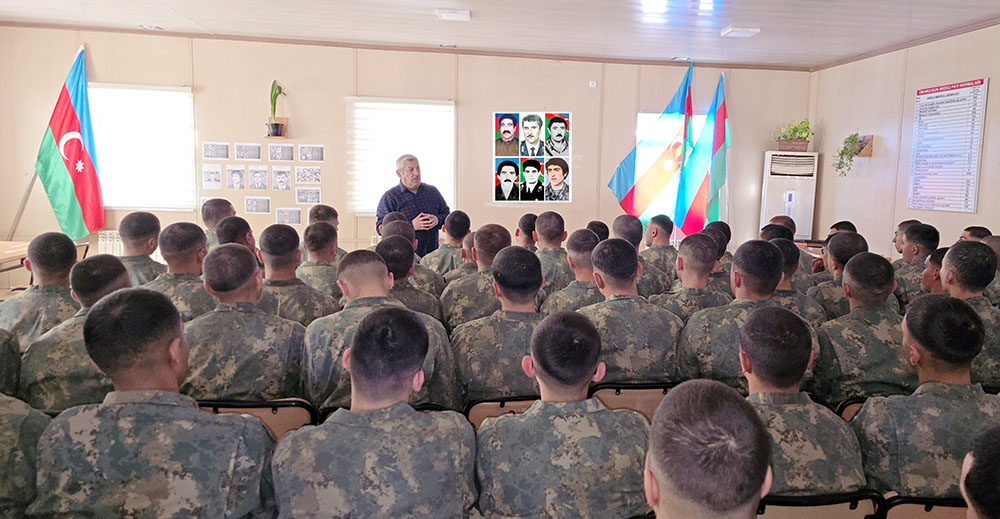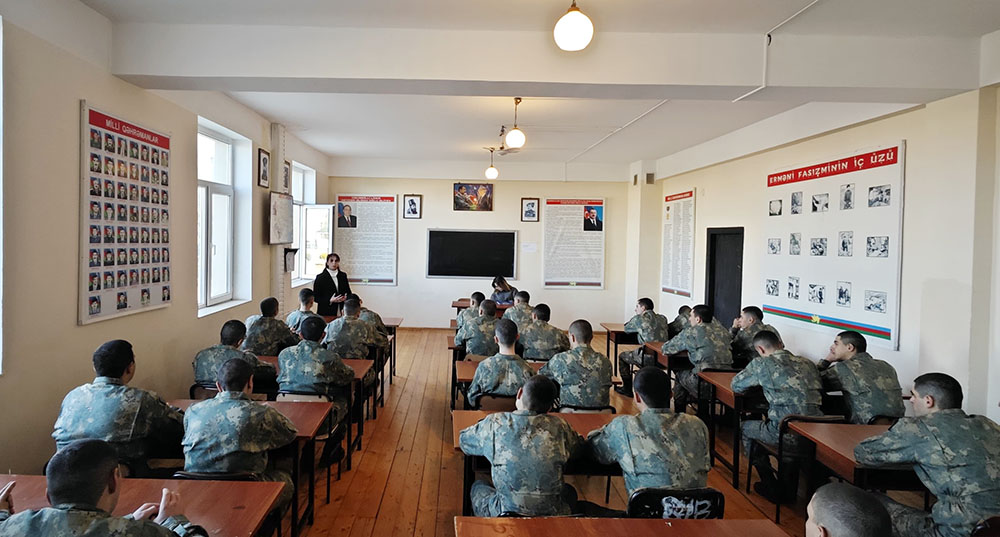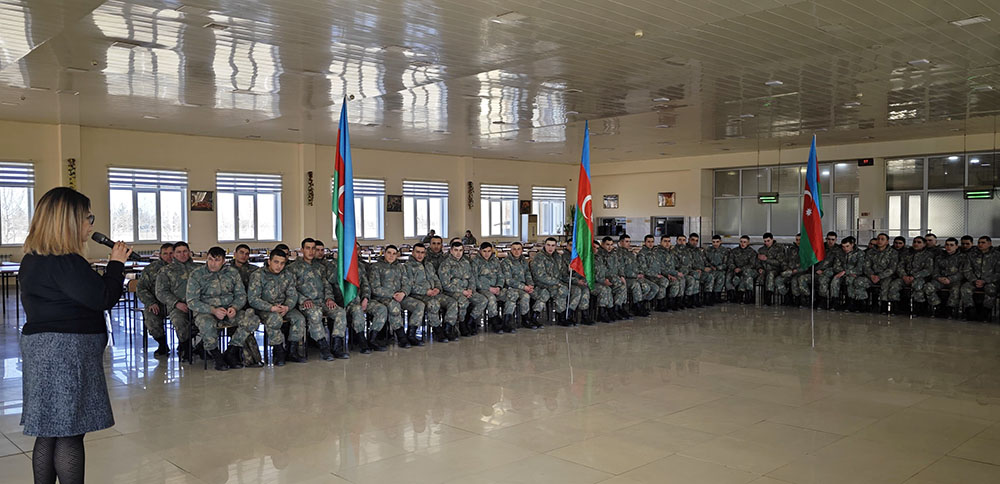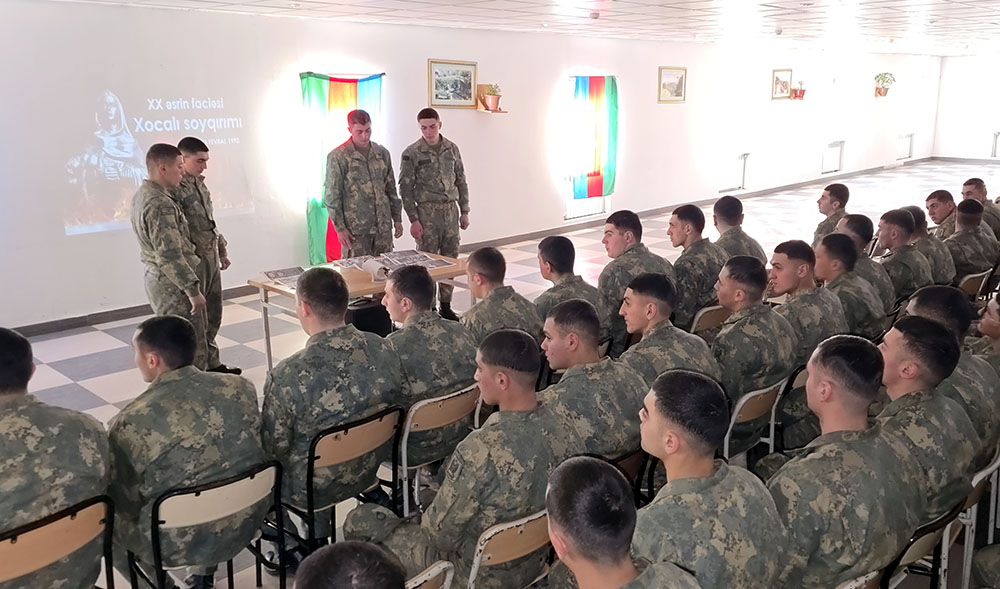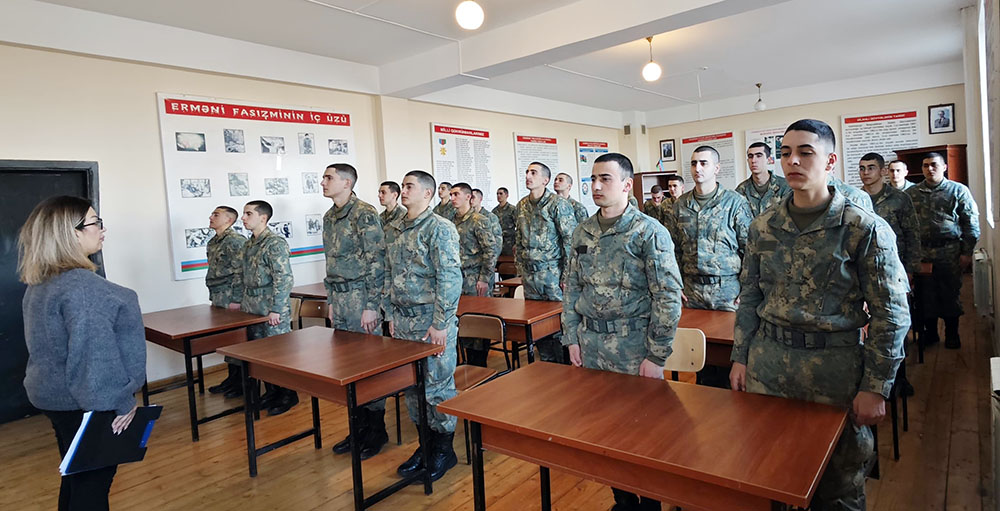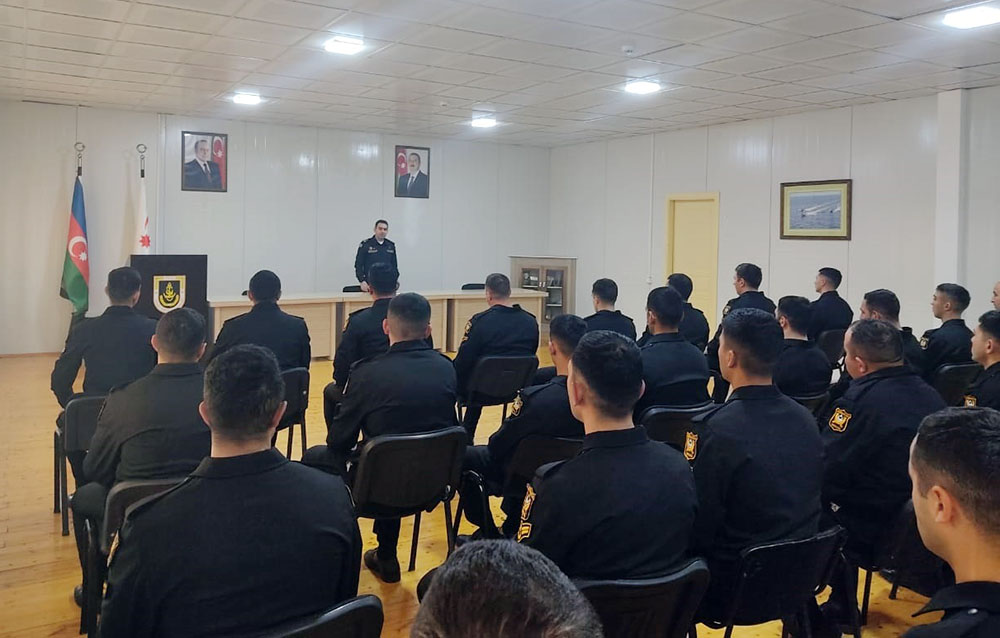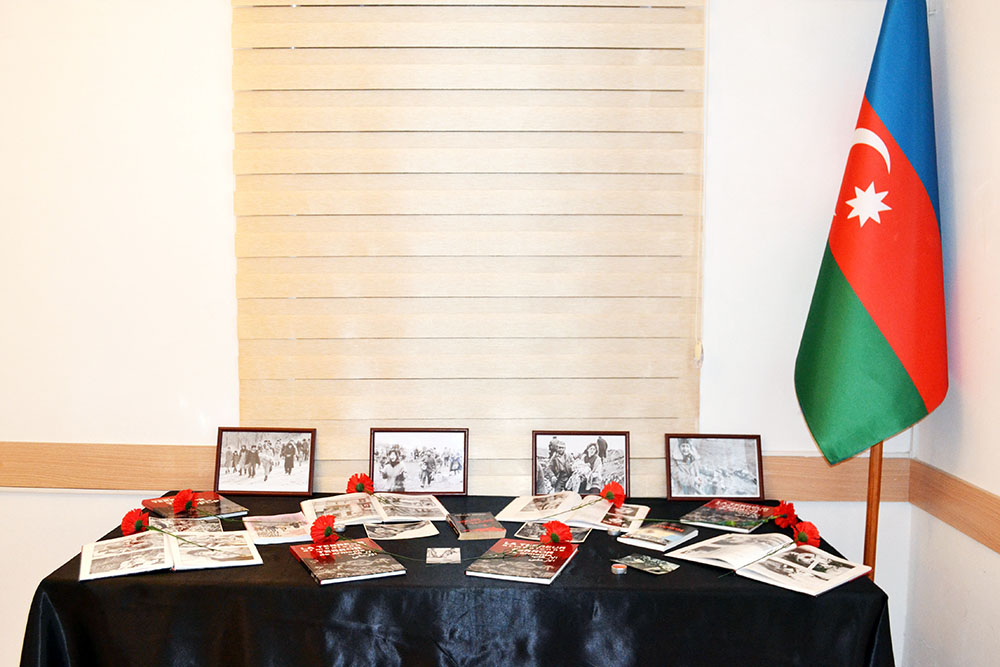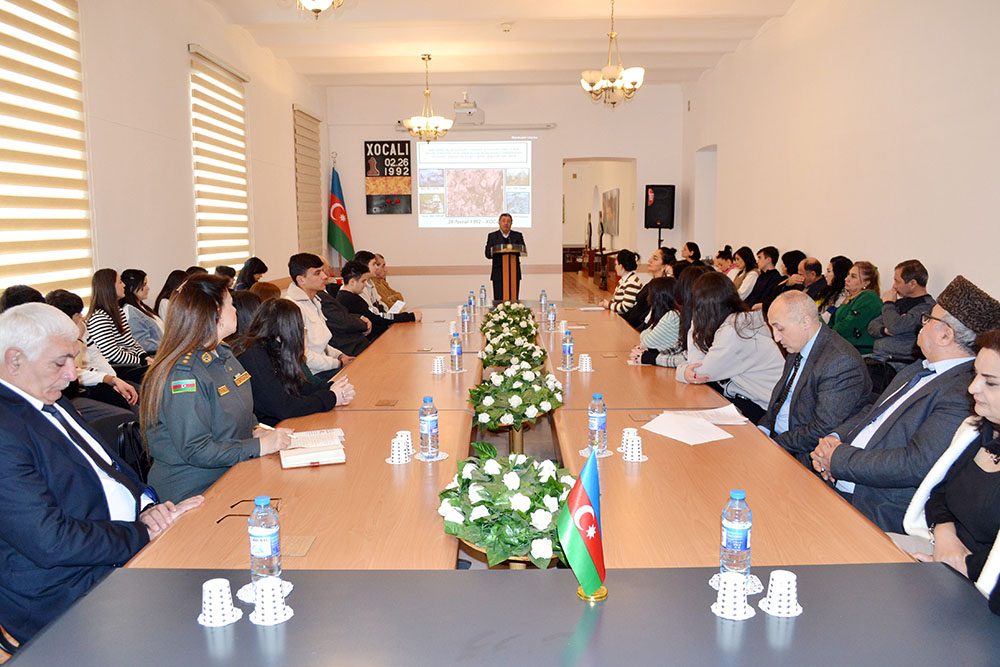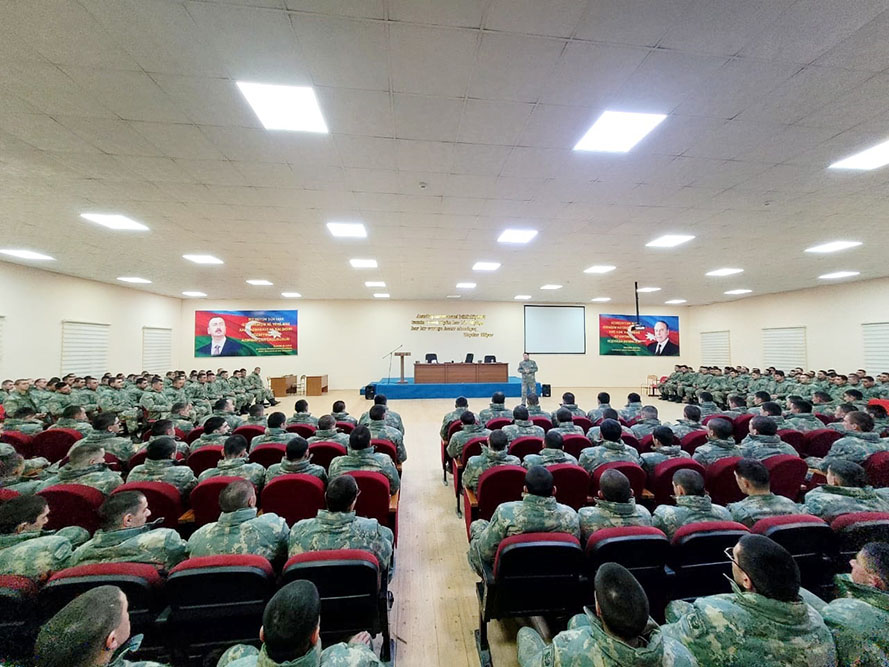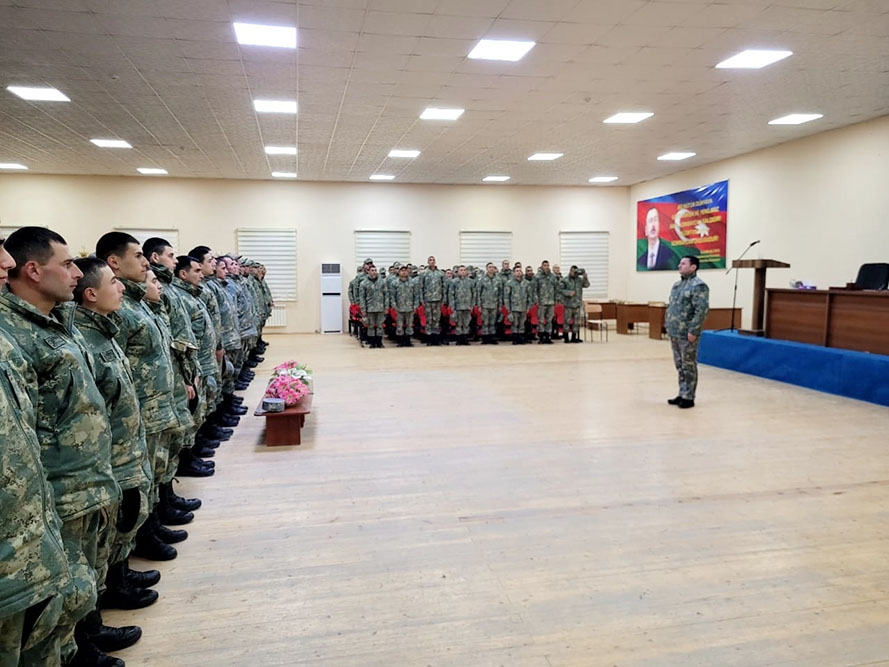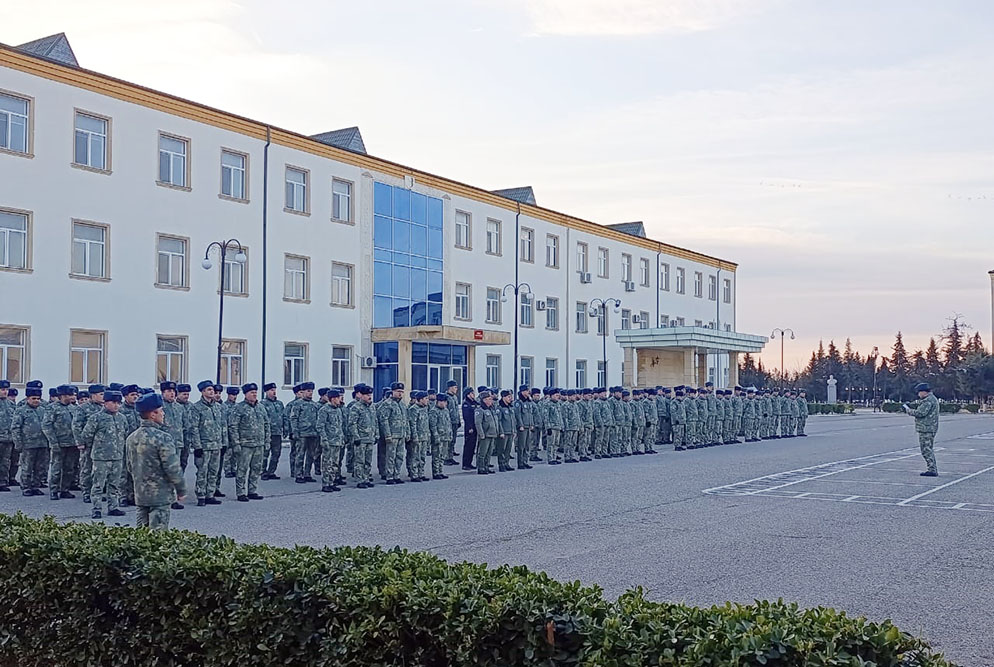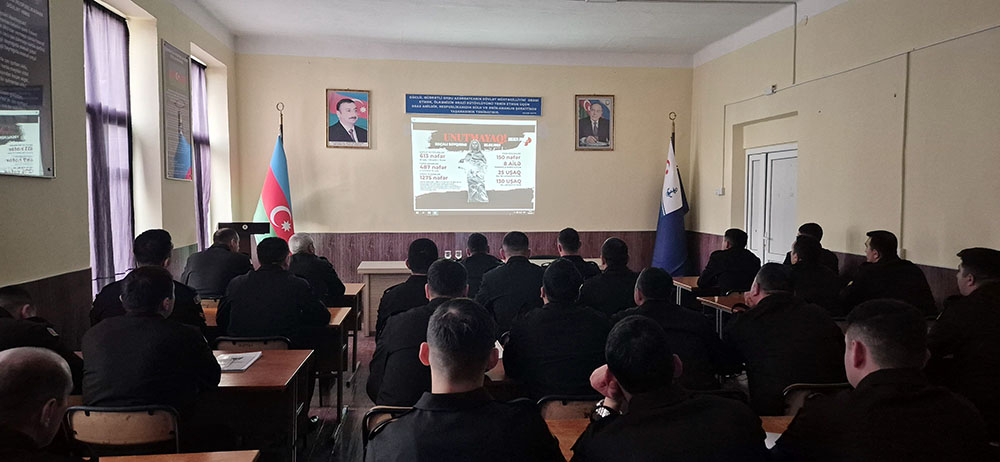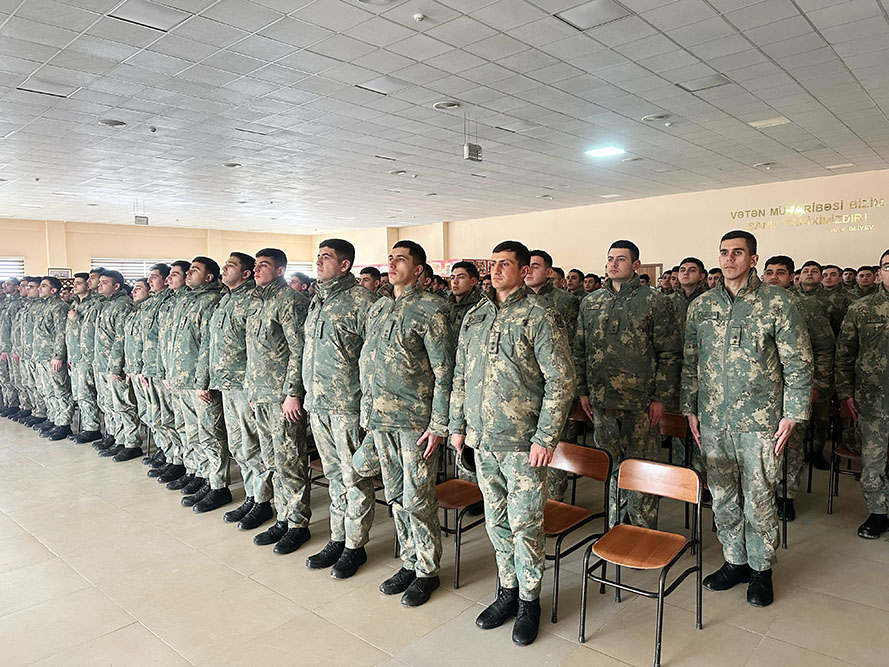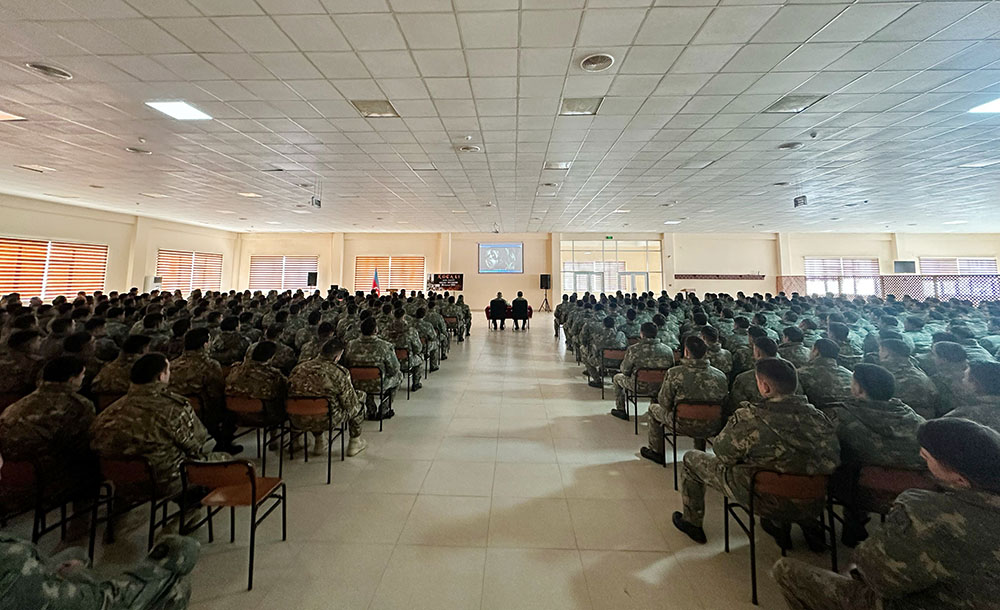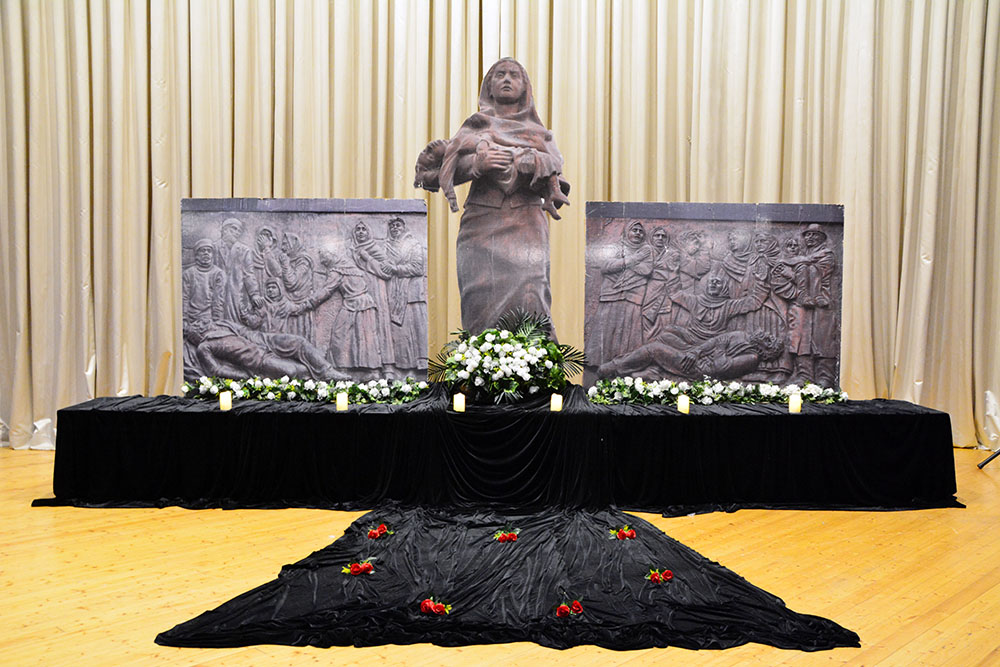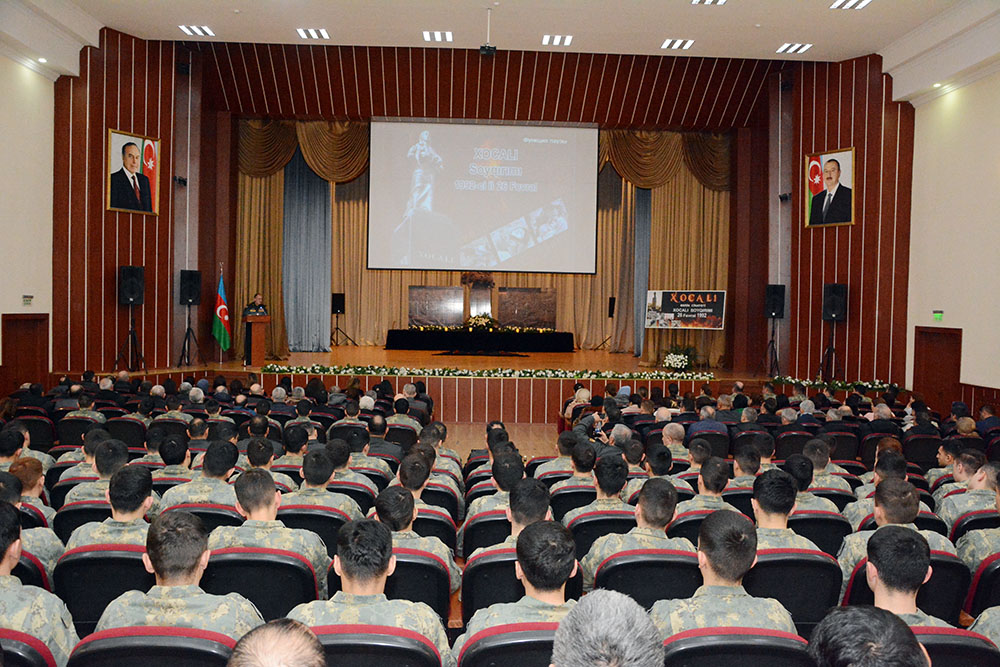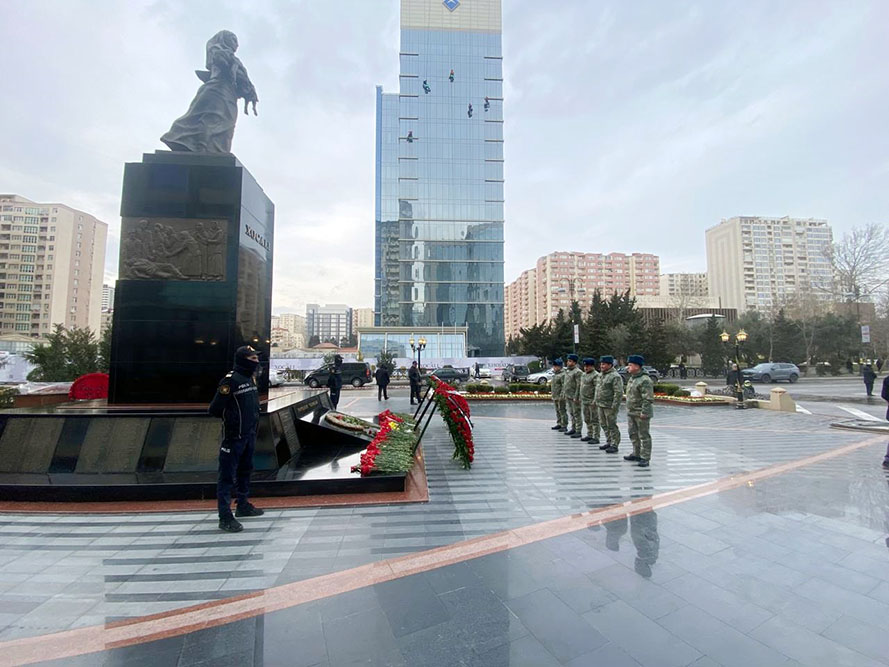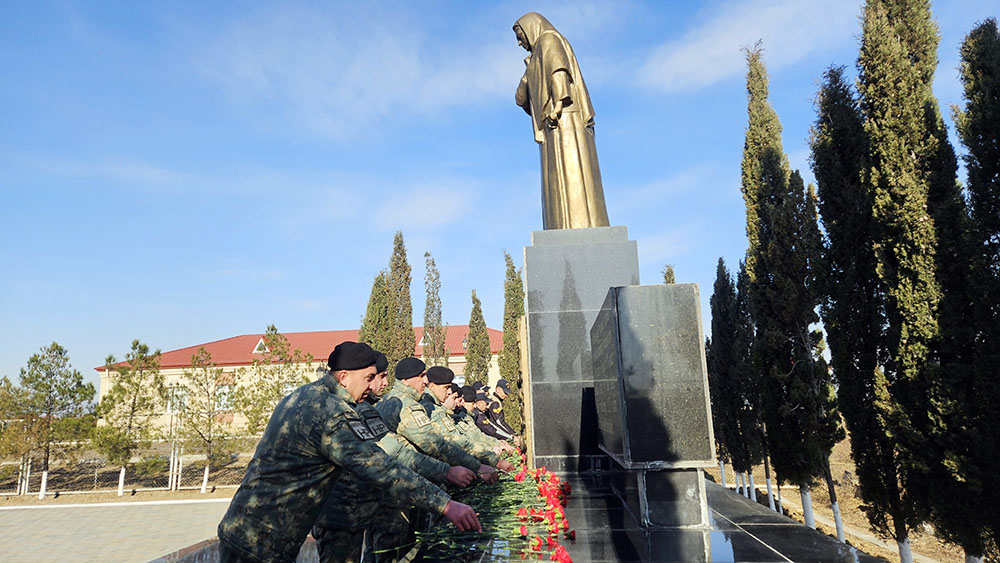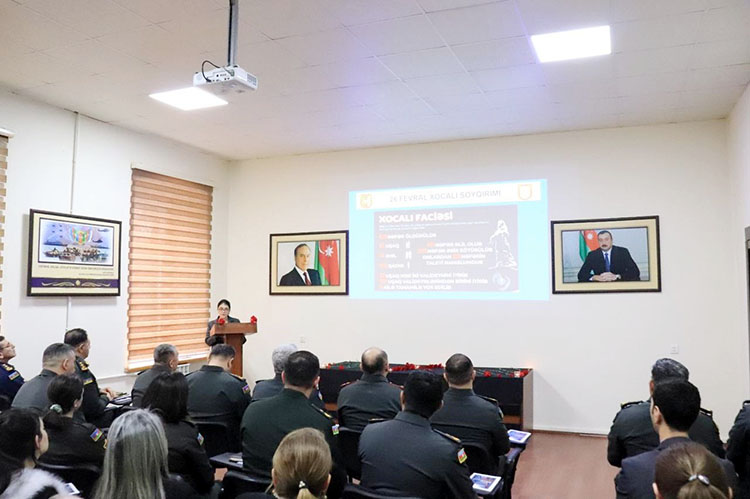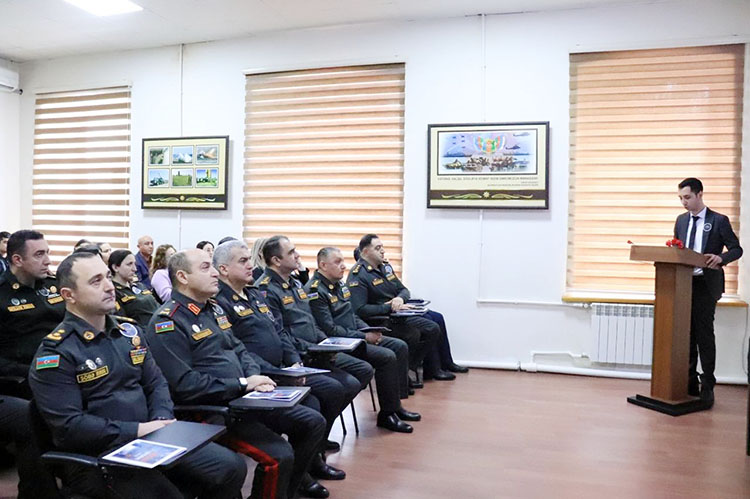- News
- Leadership
- Military press
-
International cooperation
- International Military Cooperation
- Bilateral and multilateral military cooperation
- Cooperation with NATO
- Participation in international peacekeeping operations
- Cooperation with ICRC
- Implementation of international arms control activities
- CISM - International Military Sports Council
- List of Military Attaches Apparatus of foreign countries resident in Republic of Azerbaijan
- International Army Games
-
Military education
- The system of military science and education of the Azerbaijan Army
- Military Scientific-Research Institute
- Military Administration Institute
- Training and Educational Center of the Azerbaijan Army
- Military Institute named after Heydar Aliyev
- Military Lyceum named after Jamshid Nakhchivanski and Military Lyceum named after Heydar Aliyev
- Military Medical Faculty of the Azerbaijan Medical University
- Memory
- Archive
- Contacts
26 February 2025 19:10
Several events on the occasion of the 33rd anniversary of Khojaly genocide are held - VIDEO
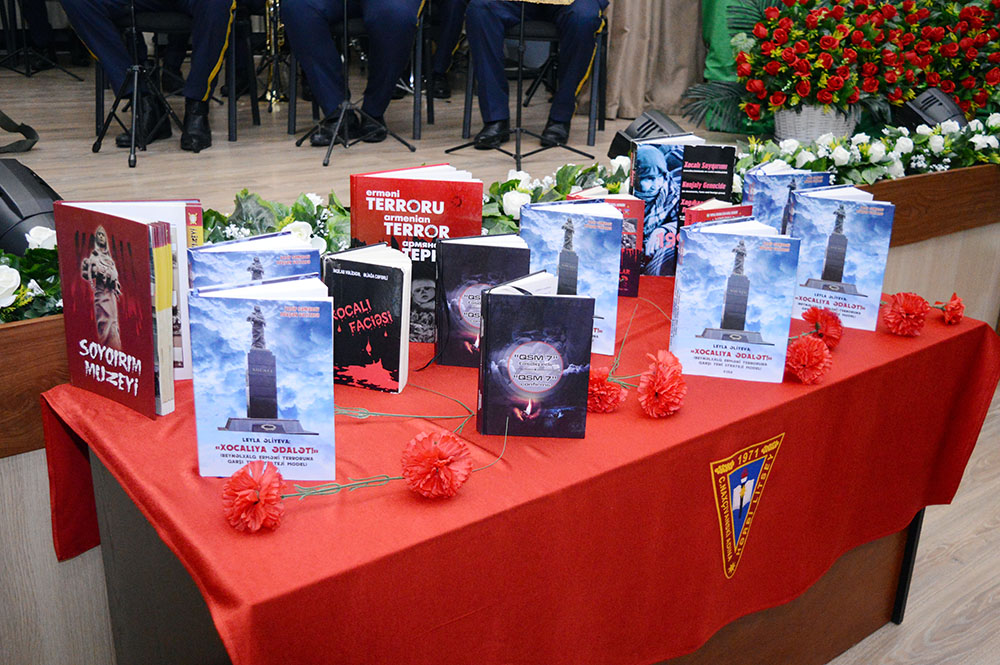
Azerbaijan Army held a series of events on the occasion of the 33rd anniversary of the Khojaly genocide.
At the remembrance events, the memory of National Leader Heydar Aliyev and Shehids, who sacrificed their lives for the sovereignty, independence and territorial integrity of Azerbaijan, as well as the victims of the Khojaly genocide was honored with observing a minute of silence. The National Anthem of the Republic of Azerbaijan accompanied by military orchestra was performed.
The speakers stated that during the night of February 25-26, 1992, Armenian armed formations with the support of the 366th motorized rifle regiment of the former Soviet army, launched an attack on the city and committed a massacre of the civilian population with extreme brutality. It was highlighted that as a result of another massacre committed by the Armenian aggressors against the Azerbaijani people, 613 people were killed, 1,275 civilians were captured, and the fate of 150 people remain unknown. As a result of this horrific act of genocide, 8 families were completely killed, 25 children lost both parents, and 130 children lost one parent. 487 people, including 76 children, became permanently disabled due to severe physical and psychological torture.
The events also highlighted the victory gained under the command of the Victorious Supreme Commander-in-Chief in the 44-day Patriotic War in response to Armenia’s provocations and military aggression, and the successful anti-terror operation conducted by the Azerbaijan Army. Additionally, the activities held by the President of the Republic of Azerbaijan, Supreme Commander-in-Chief of the Armed Forces, Mr. Ilham Aliyev, as well as the Heydar Aliyev Foundation to introduce the Khojaly genocide to the world, were emphasized.
At the events, monuments erected in memory of the Khojaly genocide victims were visited, lectures on the genocide were given during socio-political training classes, as well as photo exhibitions and documentaries were shown. Literary-artistic compositions presented by the Hazi Aslanov Army Ideological and Cultural Center, as well as the Ganja Garrison Ideological and Cultural Center aroused great interest.
